 Saint Louisians have gone from wondering if we would get a winter to being freezing. My family and I have been drinking our volume in hot chocolate as a result. I paired some of it with a copy of Danny’s Grace, by Dawn Hawkins.
Saint Louisians have gone from wondering if we would get a winter to being freezing. My family and I have been drinking our volume in hot chocolate as a result. I paired some of it with a copy of Danny’s Grace, by Dawn Hawkins.
Description from Goodreads:
Danny Rush is a master manipulator with an ego the size of Texas. He lives a secluded life in a cozy beach house, with nothing but his thoughts to keep him company. His whole life, he has avoided facing the issues that threaten to destroy the remainder of his sanity . . . Danny will lead Grace, and his subconscious, through a maze of lifelong injustices, horrifying revelations, bad decision-making, twisted ethics, and his unconventional means of survival: his childhood, his sudden rise to fame, his disgraceful and tumultuous fall to the depths. His narrative is like no other, evoking both sympathy and outrage, often simultaneously. But remember, Danny is an expert at misdirection . . .
Aside:
As an interesting aside, I picked it up in a local used bookstore because of the “local author” sticker on the cover. I’ve been trying to read more authors from my own area. I later noted that her bio says she lives in Maryland, despite the ‘local author’ sticker and a sales sticker from STLBOOKS. My best guess is maybe the book is published by a Missouri publisher.
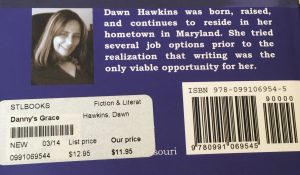
So, I may or may not have successfully supported a local author. Regardless, I won’t be doing it again. As I did a quick google search for clarification on if she is or isn’t local, I found articles by her published on Breitbart and* references to anti-Woman’s March/Pro Trump posts on her blog. She officially just jumped onto my not-to-be-read (anymore) list.
Regardless, I’ll review the book outside of her politics (and maybe being a horrible person). I just won’t buy or read anymore of her work to support her. That’s my option as a reader, American and human being.
Review:
This started out interesting, as a fictional autobiography of a fictional rock star. It’s set in contemporary times, with him looking back and relating events to a novelist who intends to write a novel about it. But he’s also talking directly to the reader. There doesn’t seem to be any sense of a third wall, with the reader being asked questions and admonished for their lack of interference in Danny’s memories. It’s an interesting narrative choice that takes time to get used to. But despite being a bit repetitive, it did work.
Further, while Danny was a notably unreliable narrator and the reader is never sure if he’s really as unlikable as he presents himself or truly just a horrible human being, as a female reader, I found being in his head distasteful and a long, long way from enjoyable.
The book eventually spirals into prosaic debauchery and loses the spark of anything new and untrodden that it started with. Unfortunately, it only worsened when it then culminated in a plot twist that frankly way too much to be believed.
I would have liked to know Danny’s age at the time of narration, so that I had more of a sense of how far he’d traveled from the events being related. How long had he lived with his history? The writing, however, isn’t bad and it seems well edited. If Hawkins’ open political stances didn’t place on my do-not-read list, I’d have been willing to give her books another shot.
*Edit Jan. 21, 2018: Ms. Hawkins has stated quite emphatically, in comments, that I have the wrong person above, she’s never written for Breitbart, I’ve judged her unfairly, and I’ve overstepped my bounds by including political feelings in my review. So, just to be sure I’d done due diligence, I spent the evening reading her blog, nothing else, just her blog. And whether she wrote for Breitbart or not (and I’ll take her word for it), I can again say without doubt, that we are almost complete political opposites, as I’d gathered earlier. I still don’t wish to read any more of her work. (And I’ll reiterate that I reviewed her book on her book’s qualities, not her politics or my feelings about them. These are two separate entities, believe it or not.)
While I respect her dedication to addressing child abuse, almost everything else she said in her blog posts I disagreed with. So, based on no google searches, but rather from her own blog posts and comments below, my opinion hasn’t changed. We both have the right to hold the positions we do and to think the other wrong. And perhaps it was bitchy of me to bring it up here, but what use is having your own blog if not to post your own opinions? Ms. Hawkins doesn’t seem to have any issue doing it herself.
The passage above, about Ms. Hawkins the person, is the result of my lived experience. I read the book, wrote a review, was curious about whether she was a local author or not and googled her. I encountered her blog. This was all part of the experience that went into writing this post. It was organic and unplanned, but it was real. This blog is part book reviews, part personal journal, part social commentary, and part whatever else I feel like. I don’t limit or censor myself when writing it. I post what seems important in the moment. And at the moment, “Oh look what I found on her blog…” was prominent in my mind and, therefore pertinent.
I can appreciate that it sucks to go online and find some stranger has stated they dislike your opinion and maybe even you. But if you’re going to put your political opinions out for the world to be read you have to assume people will read and respond to them. I accept that with this blog. I accept that I wrote about Ms. Hawkins, she read and reacted to it. That’s what happens on the internet. It will happen again. No doubt I’ll find myself on both sides of the occurrence at some point.
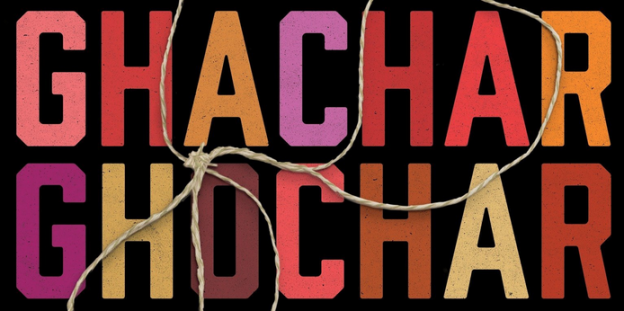
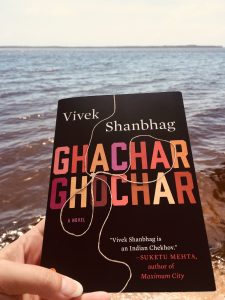 I won a copy of
I won a copy of 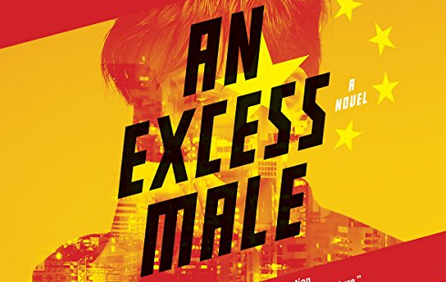
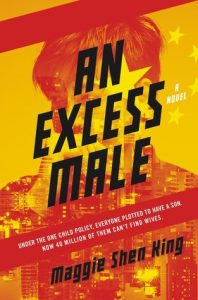 I borrowed a copy of
I borrowed a copy of